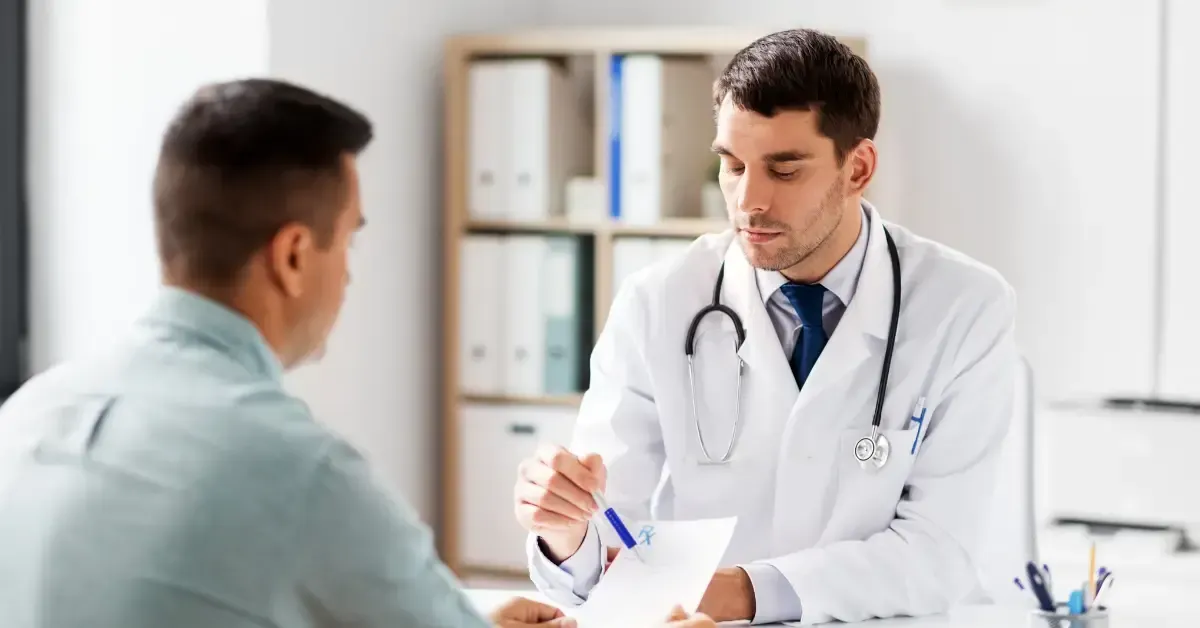
Top 10 Questions to Ask Before Starting TRT
Introduction
Starting testosterone replacement therapy is a serious, personal decision. You deserve to understand the potential benefits, risks and responsibilities before embarking on treatment. Rather than simply accepting a prescription, ask your healthcare provider key questions that clarify whether TRT is right for you. Total Health Pros in Hurricane, WV encourages patients to be active participants in their care. Here are ten questions you should feel comfortable discussing before starting testosterone.
1. Do I truly have low testosterone?

This might seem obvious, but confirming a diagnosis is the first step. Symptoms like fatigue, low sex drive or mood changes could have many causes—sleep deprivation, stress or depression. Cleveland Clinic notes that healthcare providers will order two morning testosterone tests (before 10 a.m.) and other blood work to confirm hypogonadism. Ask your doctor:
Which tests will you perform?
What level do you consider “low”?
Should we repeat the test if one result is borderline?
2. What is causing my low testosterone?
Testosterone levels can decline because of aging, obesity, chronic illnesses, pituitary or testicular disorders, and certain medications. The Mayo Clinic explains that providers will test for pituitary abnormalities, semen analysis and genetic studies when appropriate. Understanding the cause helps you determine whether treatment should target the underlying problem rather than simply replacing testosterone.
3. What are the benefits of TRT?
TRT can improve many aspects of quality of life. Benefits often include increased libido, improved sexual function, lean body mass, bone mineral density, mood and energy. Ask your provider which benefits are most likely for you, and set realistic expectations—testosterone is not a miracle cure for every ailment.
4. What are the risks and side effects?
Testosterone therapy isn’t free from risks. Side effects can include acne or oily skin, fluid retention, breast enlargement, worsening sleep apnea, smaller testicles and reduced fertility. Blood tests may reveal elevated PSA or red blood cell counts. Some studies have raised concerns about cardiovascular risk, though research is mixed. Ask your provider to explain short‑term and long‑term risks and how they will mitigate them.
5. How will we monitor therapy?

TRT requires ongoing supervision. Cleveland Clinic stresses that after starting therapy, you’ll need regular blood tests to monitor testosterone levels and ensure the treatment isn’t harming your health. Follow‑up frequency varies; typical schedules involve checks at 3 months, 6 months and annually thereafter. Ask about the exact schedule, which labs will be tested, and how side effects will be addressed.
6. Are there non‑hormonal alternatives?
Sometimes low testosterone is secondary to lifestyle factors such as obesity, sleep deprivation or chronic stress. Harvard Health notes that maintaining a healthy weight, losing excess abdominal fat, exercising regularly and managing stress can boost testosterone naturally. Sleep is especially important—testosterone release peaks during REM sleep, and sleep restriction can reduce levels by 10–15 % after just one week. Ask your provider whether weight loss, resistance training, stress reduction or treatment of sleep apnea could raise your levels without medication.
7. How will TRT affect my fertility?
Testosterone therapy can significantly reduce sperm production. Cleveland Clinic warns that men who plan to have biological children should avoid TRT because it can decrease sperm count and cause fertility issues. Discuss fertility goals with your provider. In some cases, selective oestrogen receptor modulators (SERMs) or human chorionic gonadotropin (hCG) may be alternatives to maintain fertility.
8. What lifestyle changes should I make?
Long‑term success on TRT goes beyond a prescription. Harvard Health recommends maintaining a healthy weight, engaging in both resistance and cardiovascular exercise, adopting a nutrient‑dense diet (rich in healthy fats, lean proteins, vegetables and foods like onions, oysters and fatty fish) and limiting alcohol. Avoid smoking and reduce exposure to environmental toxins like BPA. Get seven to nine hours of quality sleep and manage stress through meditation, yoga or breathing exercises. Ask how the clinic will support you in making these changes; at Total Health Pros we offer nutrition coaching, FoodAlign testing and a macro calculator to personalise your diet.
9. Which TRT delivery method is best for me?
TRT comes in several forms: daily skin gels, weekly intramuscular injections, long‑acting pellets, nasal gels and oral capsules. Discuss convenience, cost, absorption, and side effect profiles. For example, gels provide steady levels but require daily application and caution to prevent transferring medication to others; injections are cheaper but produce peaks and troughs; pellets offer convenience but require a minor procedure. Ask about insurance coverage and whether the clinic can teach self‑injection.
10. How long will I need TRT?
Testosterone replacement therapy is usually a long‑term commitment. Once you start, your testes reduce their own production, meaning you may need the medication indefinitely. Ask your provider under what circumstances therapy could be stopped, and how to transition off TRT safely if necessary. For some men, improved weight, sleep and stress management may restore endogenous testosterone production. Others may choose to stay on therapy for life.
Conclusion
Asking these questions helps ensure that testosterone therapy is safe, effective and aligned with your goals. At Total Health Pros, we welcome informed patients and provide transparent answers. Our Hurricane, WV clinic integrates advanced diagnostic testing, functional medicine and personalised coaching. Book a consultation today to discuss your questions and craft a plan tailored to your h
